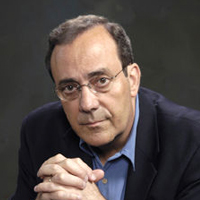A HURRICANE NAMED COMMUNISM

By: Carlos Alberto Montaner - 2017/09/18
Share:Amid the hurricane, I received a mysterious photo of Fidel Castro. Atop it said, “Fidel has resurrected.” Below, it cleared the mystery: “Now he's called Irma.” The Comandante had been reincarnated into a ferocious cyclone.
The joke has a serious basis, explained to me by Juan Manuel Cao, one of the leading journalists at América TeVé. Communism and hurricanes have a lot in common. They leave long-suffering society without electricity, without food, without medicine, without clothing, without gasoline. Potable water becomes an elusive trickle that vanishes with Houdini-like skill. They are magicians. They make everything disappear. That's socialism for you.
But both catastrophes differ in a key aspect: hurricanes last only a few days and people await — full of hope — the end of the downpour and the windstorm. By contrast, communism lasts an eternity and the hopes of seeing its end gradually vanish. We Cubans have spent 58 years in penury. The Venezuelans — although they've still not reached “the sea of happiness” promised by Hugo Chávez — began their voyage almost 20 years ago. They are reaching their destination. May God have mercy on their souls.
In a bulletin written by historian Juan Antonio Blanco, the Foundation for Human Rights in Cuba issues a devastating response to statements by dictator Raúl Castro. The general has said that almost all the resources available to Cuba in the final quarter of 2017 will be used to rebuild the hotel infrastructure destroyed by Hurricane Irma.
The businesses — almost all of them foreign — co-directed by the Cuban generals will have priority. If a street or a building needs repair, if a power or telephone line needs rewiring, it will not be one that serves the Cubans; it will be one that serves the foreigners. It has always been thus. It is the government, without consulting the citizenry, who will decide how it will spend the resources generated by the work of the Cuban people.
When such catastrophes occur, they make more evident the cruel application of systems where the government, owner of all properties, all resources and all decision-making mechanisms, chooses the worst possible fate for its subjects.
In societies where private property prevails, the citizens protect their assets with insurance coverage; if they don't have it, they borrow money to repair their homes or lands. They don't wait for the State to satisfy their most pressing needs, because they know that — as Ronald Reagan used to say — there is no creature more dangerous than someone who tells us: “I'm a representative of the government and I come to solve your problems.”
In Cuba, there are thousands of people affected by cyclones that occurred six, seven or ten years ago who continue to live in provisional shelters that are falling apart. Frequently, aid from abroad is sold for dollars in special stores.
I remember a shocking revelation made by an angry Jaime Ortega — then a bishop, soon to be a cardinal — at my home in Madrid in the 1990s. When reunified Germany tried to donate thousands of tons of powdered milk to Cuba through Caritas Internationalis (the Germans knew, through their diplomats in Havana, that the Cuban government sold those valuable gifts) an indignant government representative, a Deputy Minister of Foreign Trade named Raúl Taladrid, under instructions of Fidel Castro, made an awful pronouncement that should go into the annals of infamy: “Cuban children will drink water with ashes, rather than drink milk distributed by the Church.”
Now it's Irma's turn. Little by little, the nation will markedly erode, from hurricane to hurricane, from storm to storm, until it becomes an indescribable ruin, so long as the system remains in effect. I am not surprised, therefore, by the bitter joke. Fidel was reincarnated in “Irma.” Tomorrow it may be in “Manuel” or “Carmen” — until Cuba becomes a fuzzy memory, or until that battered society manages to remove from its neck the heavy chain and begins its long quest for national reconstruction, away from socialist utopia.
Published in Spanish by
El Blog de Montaner